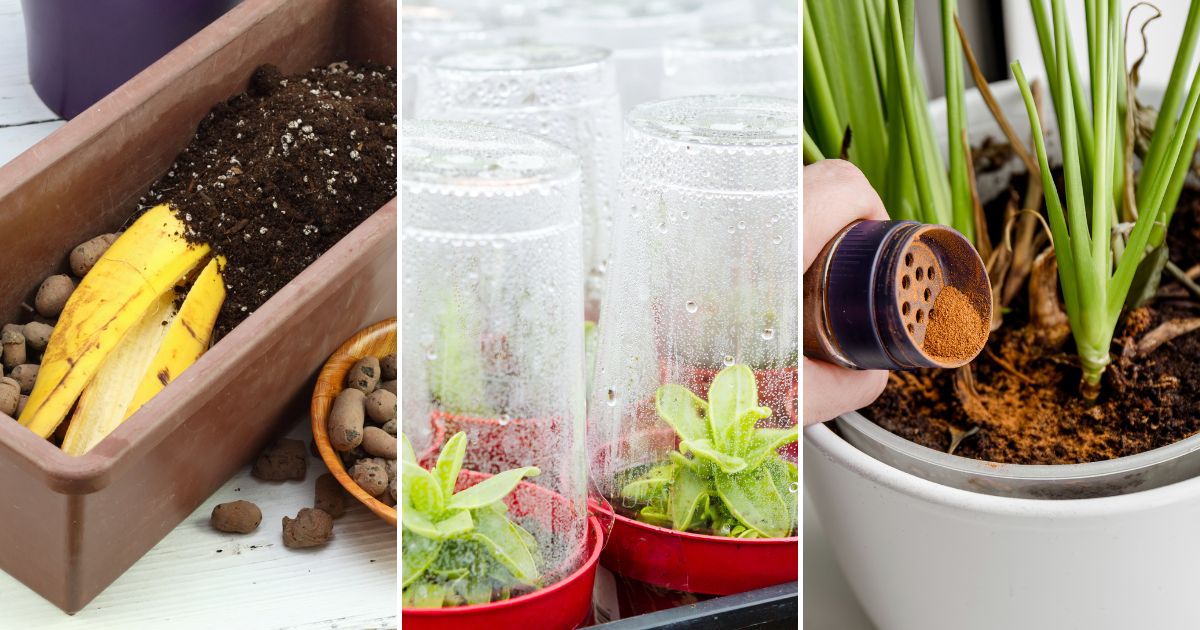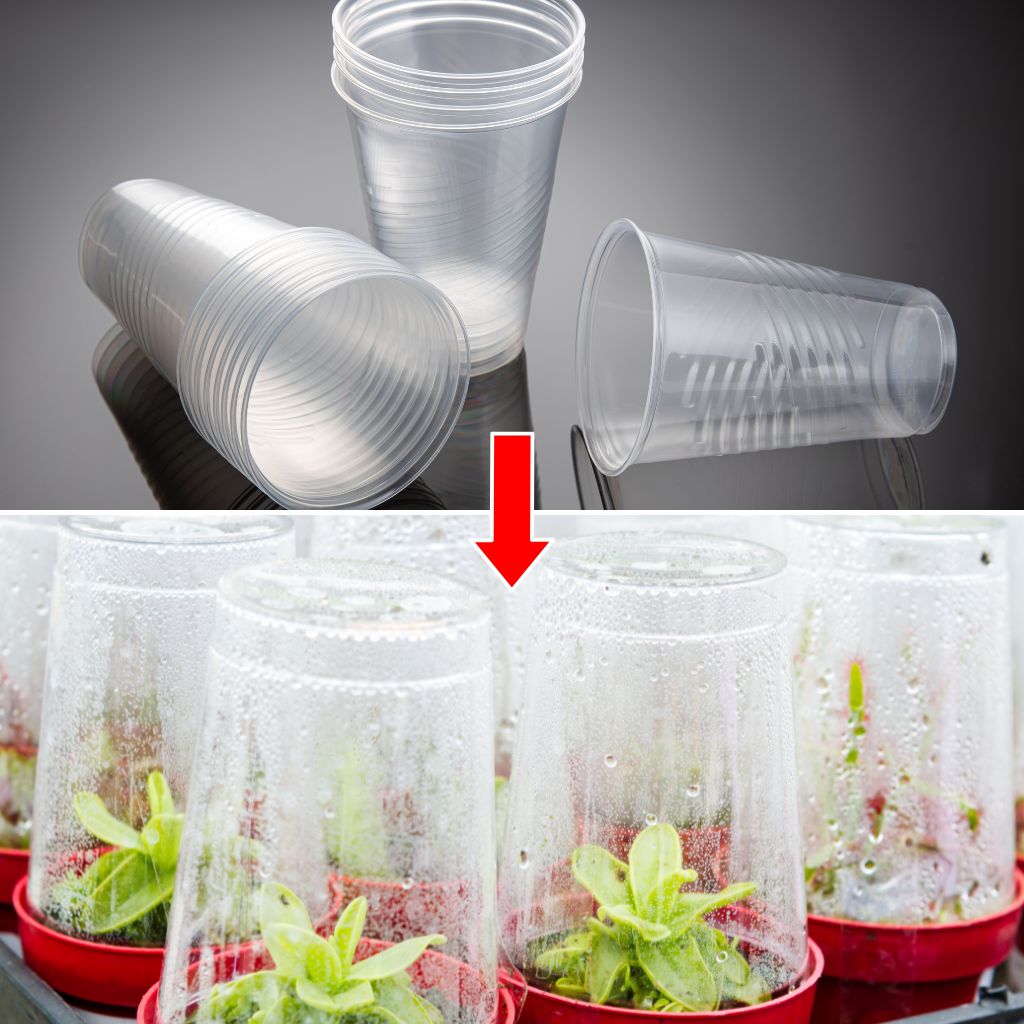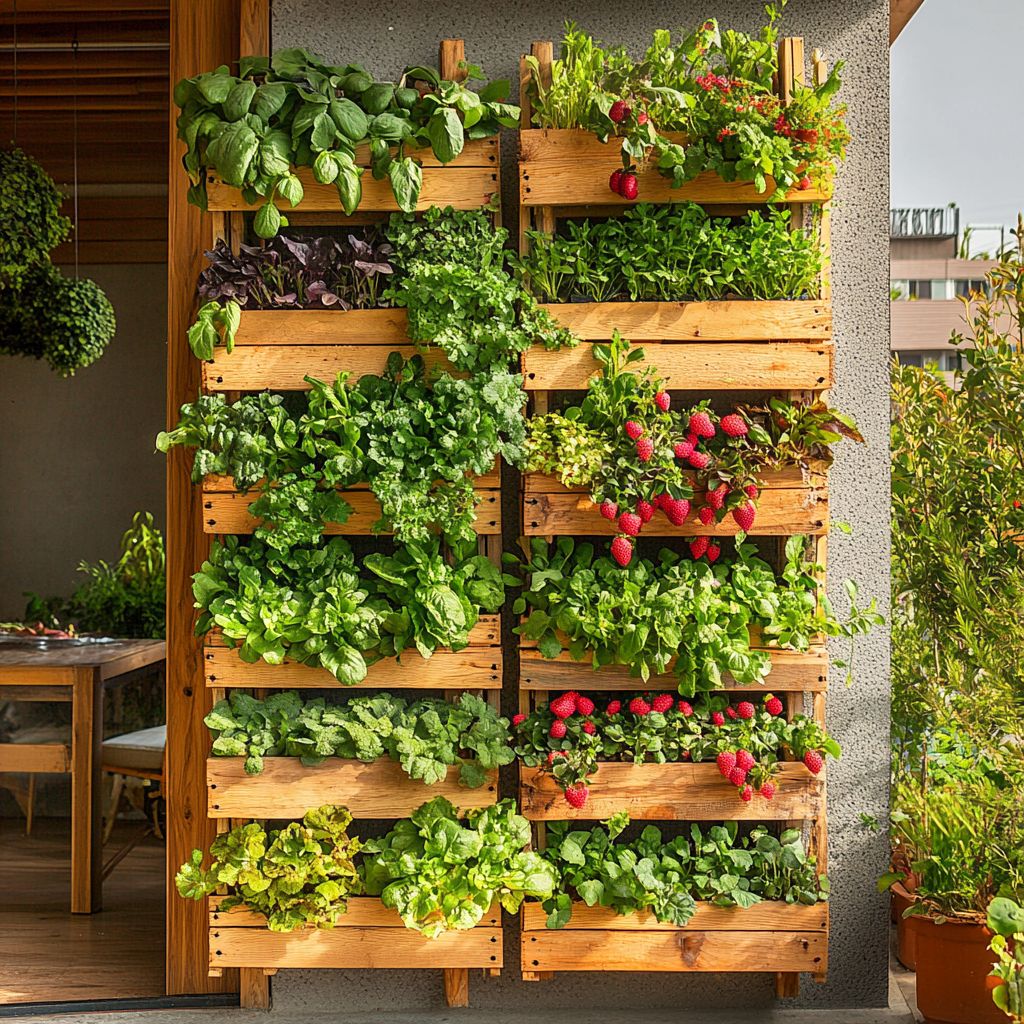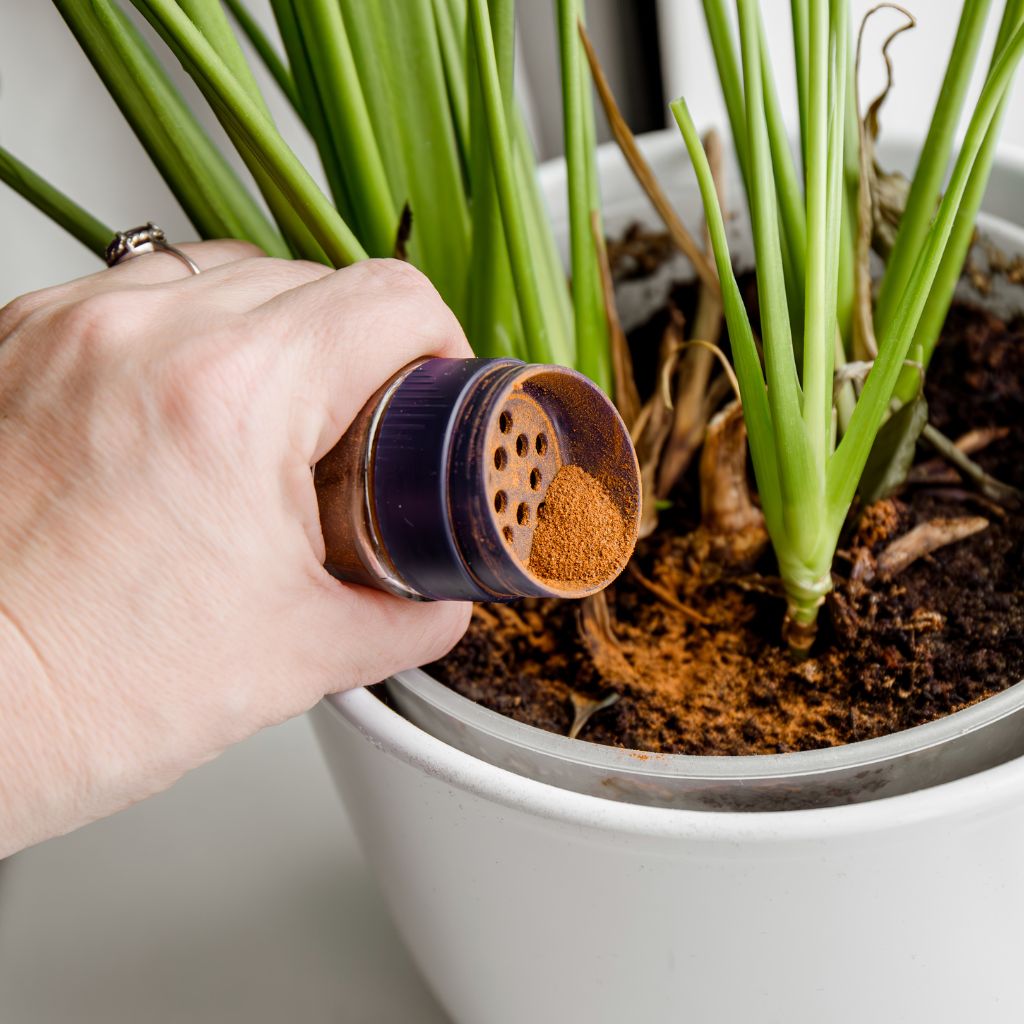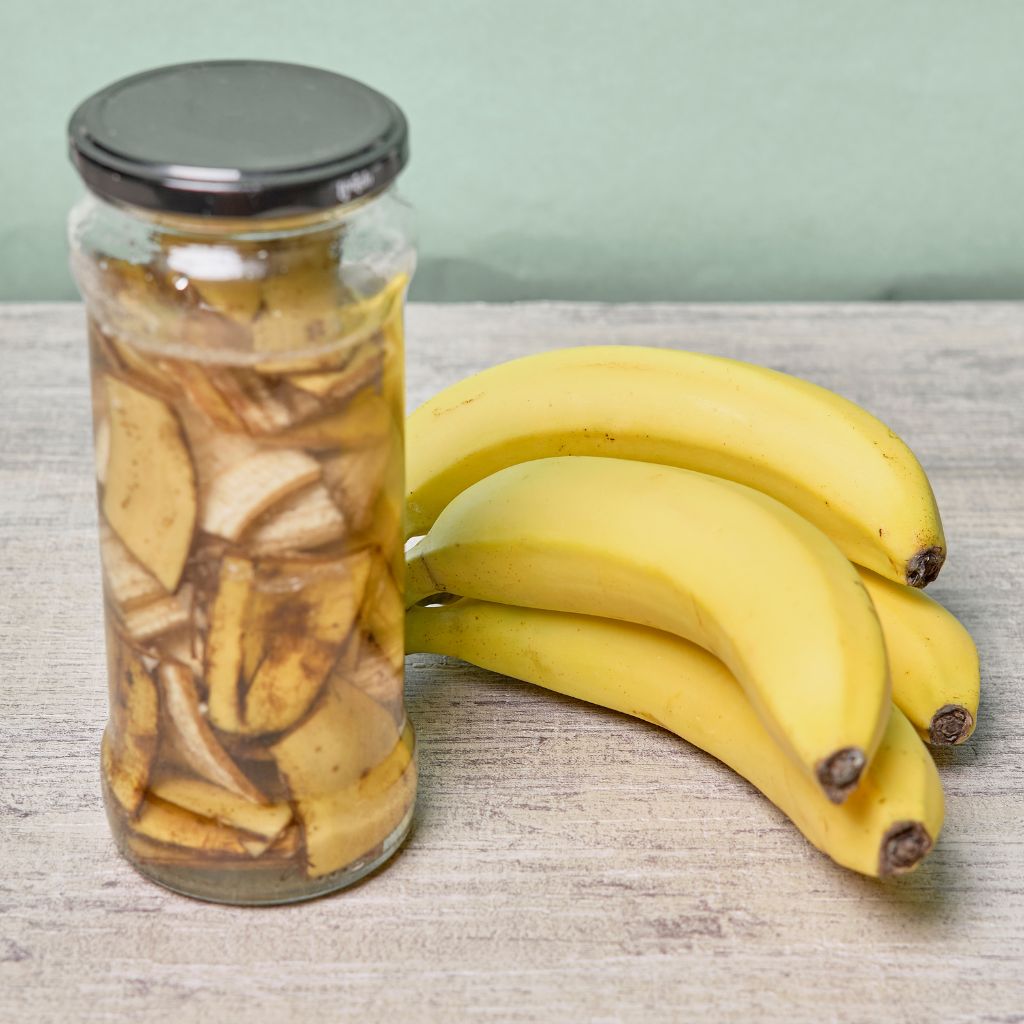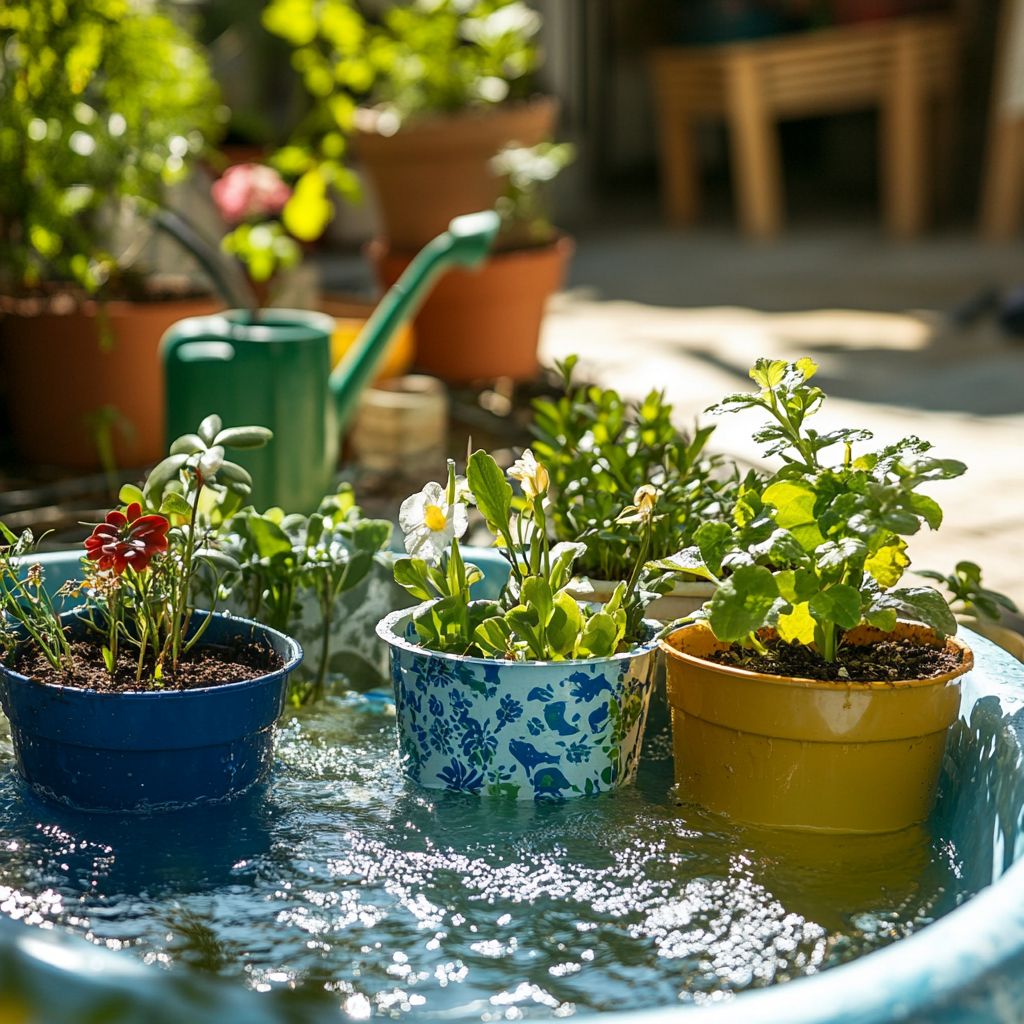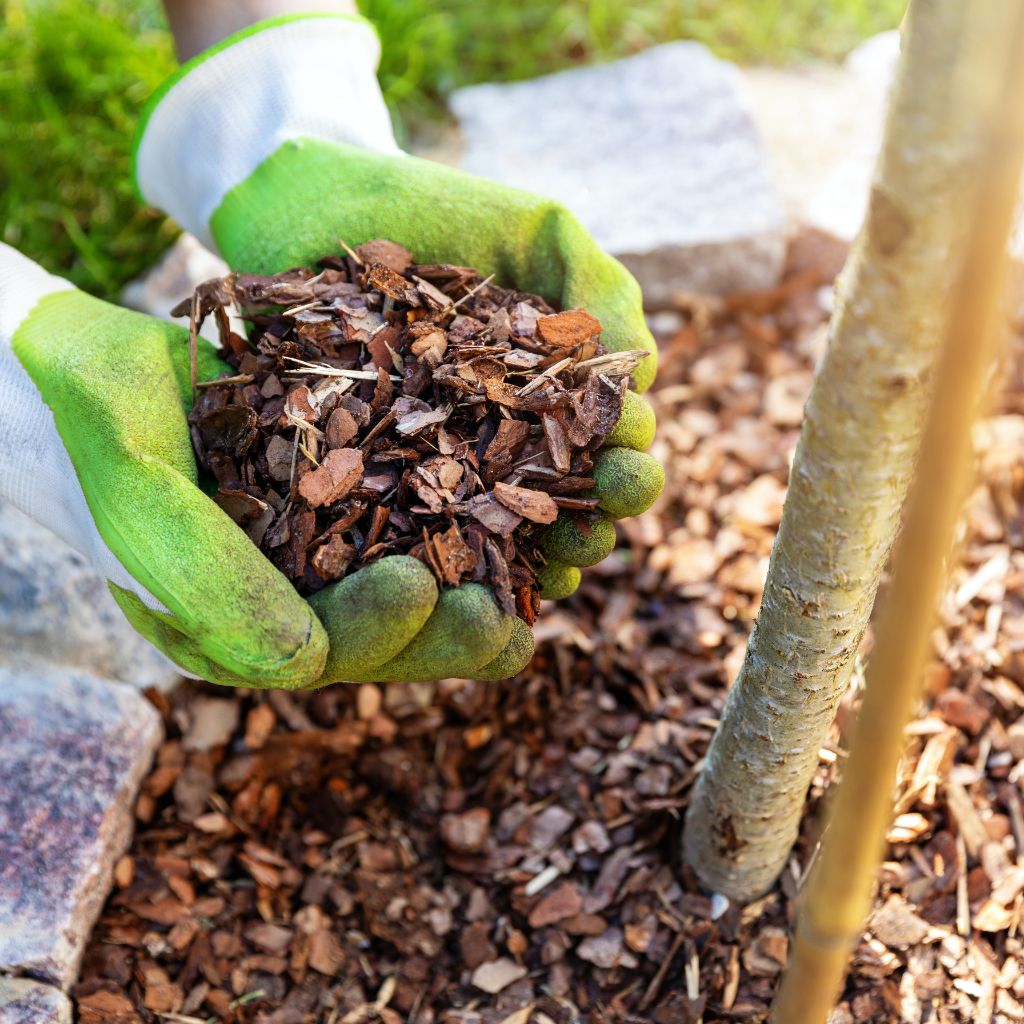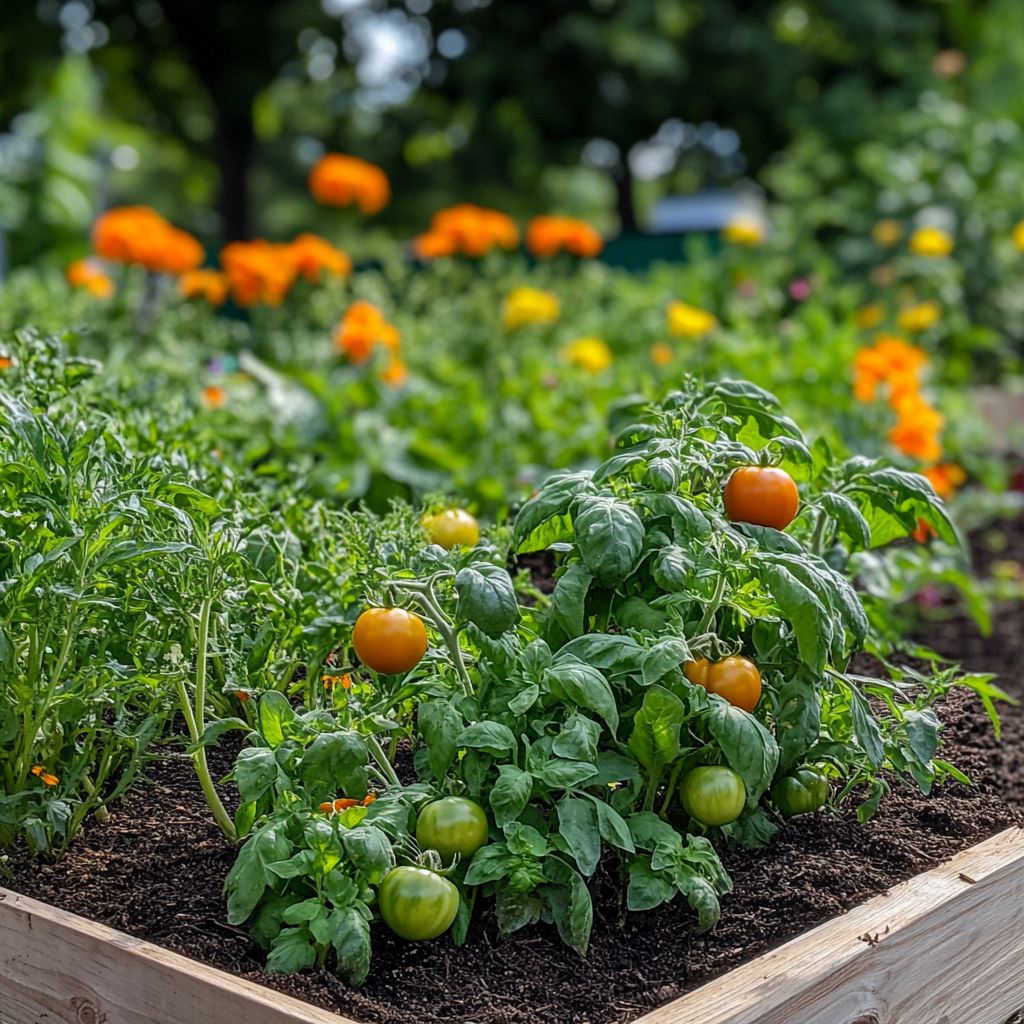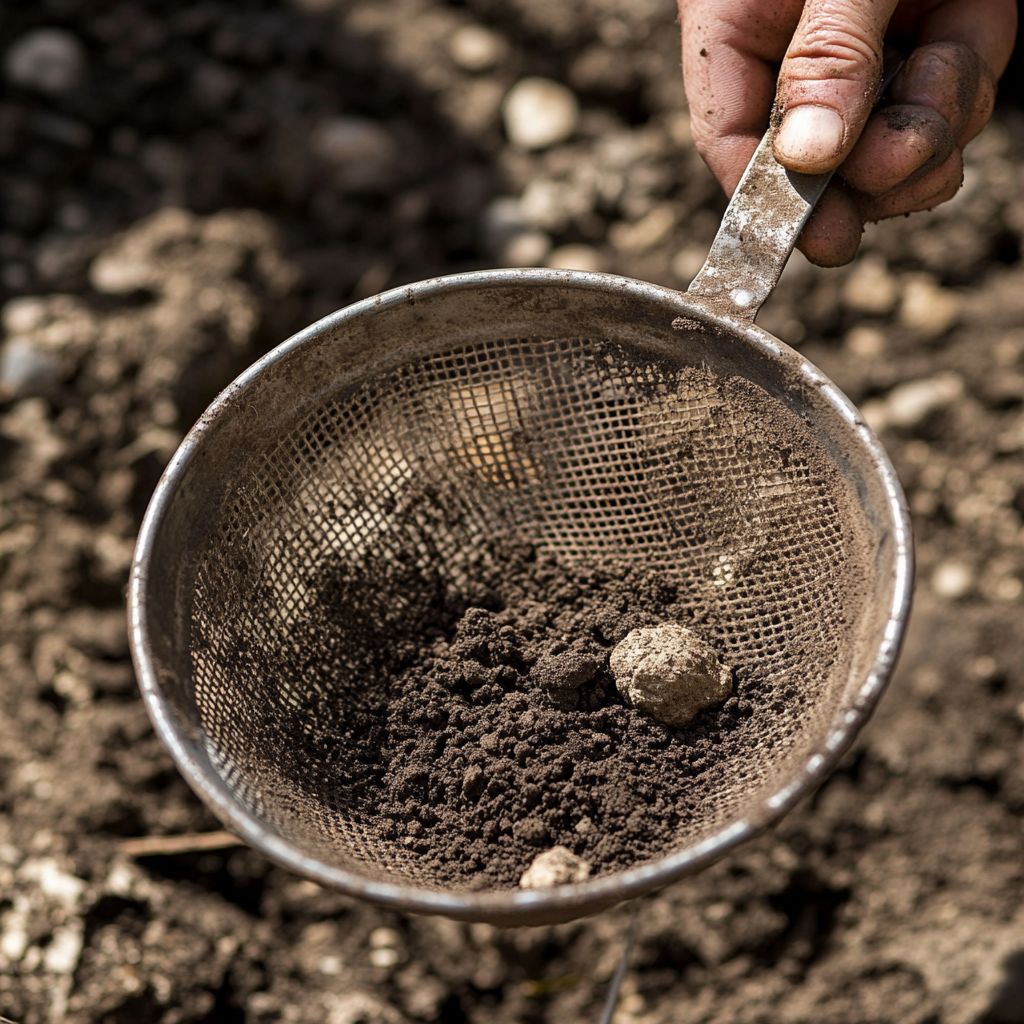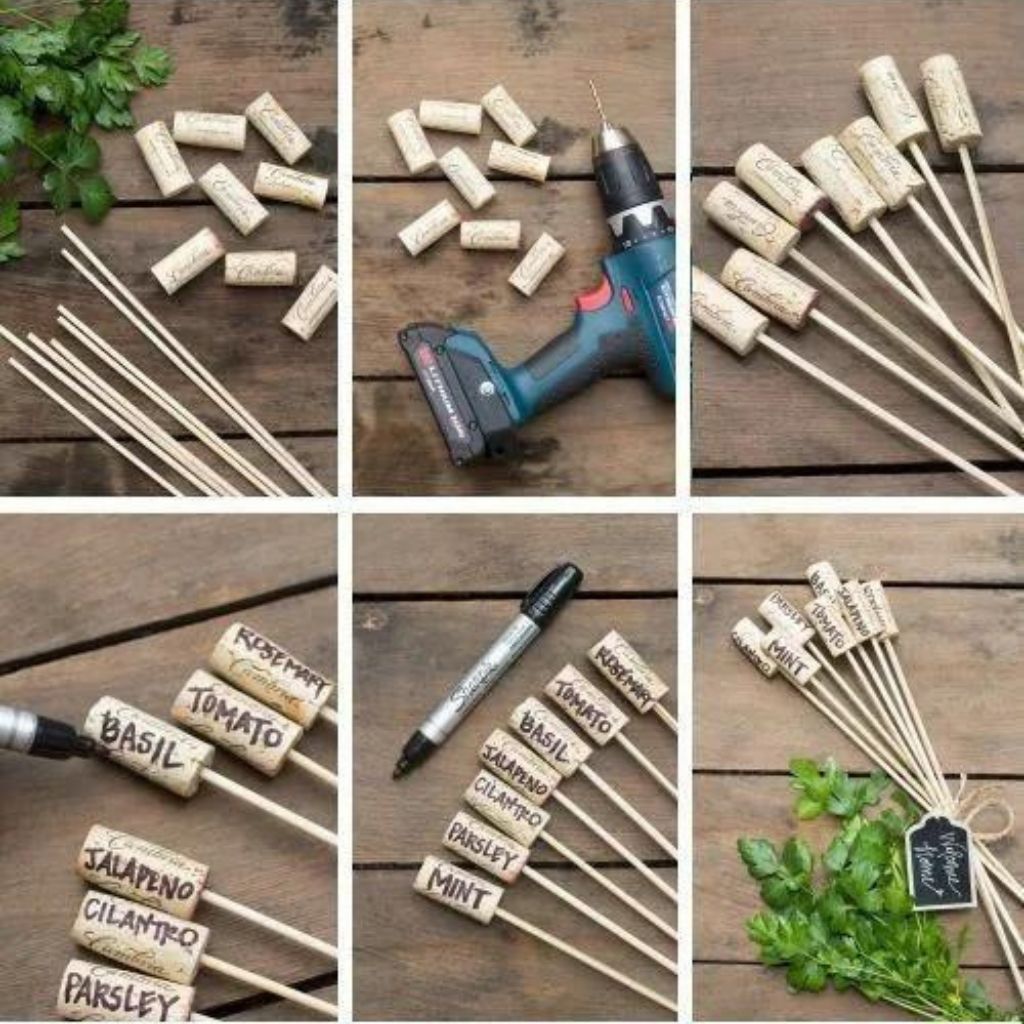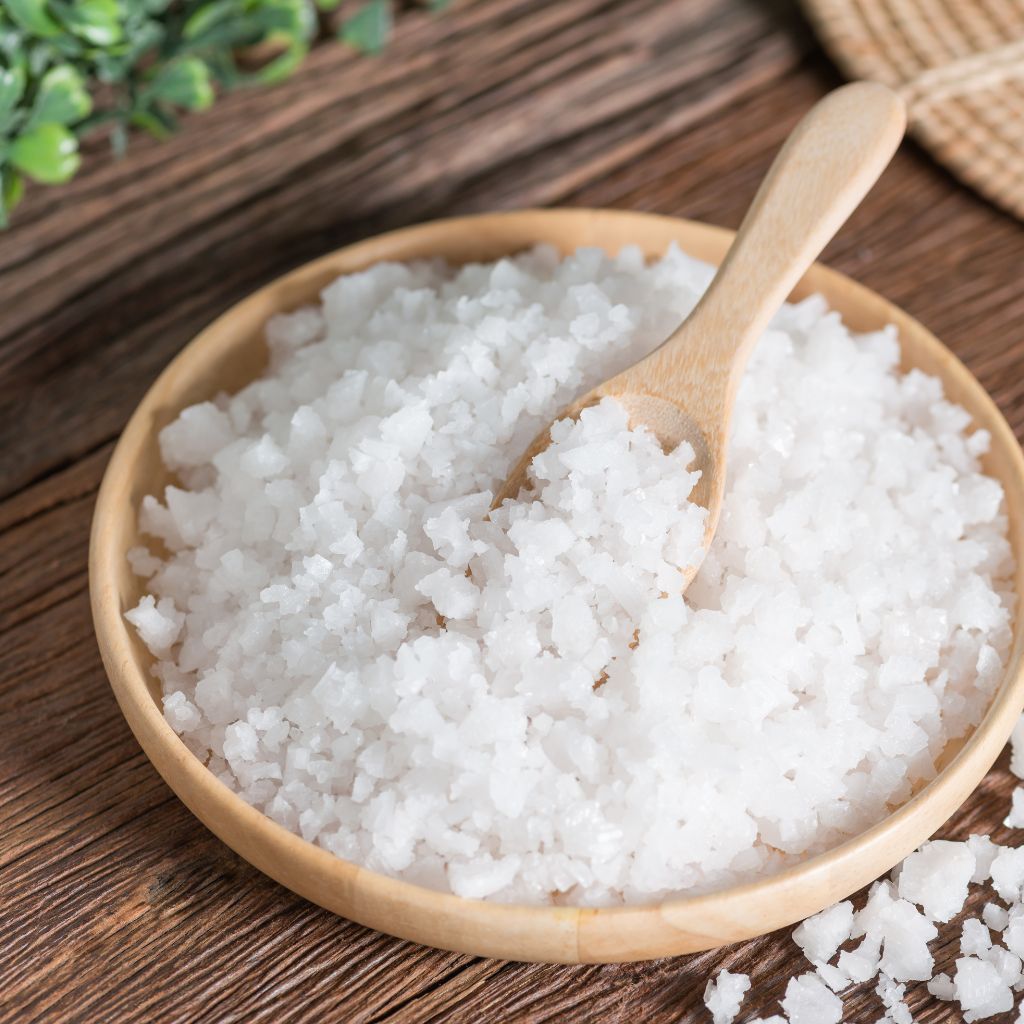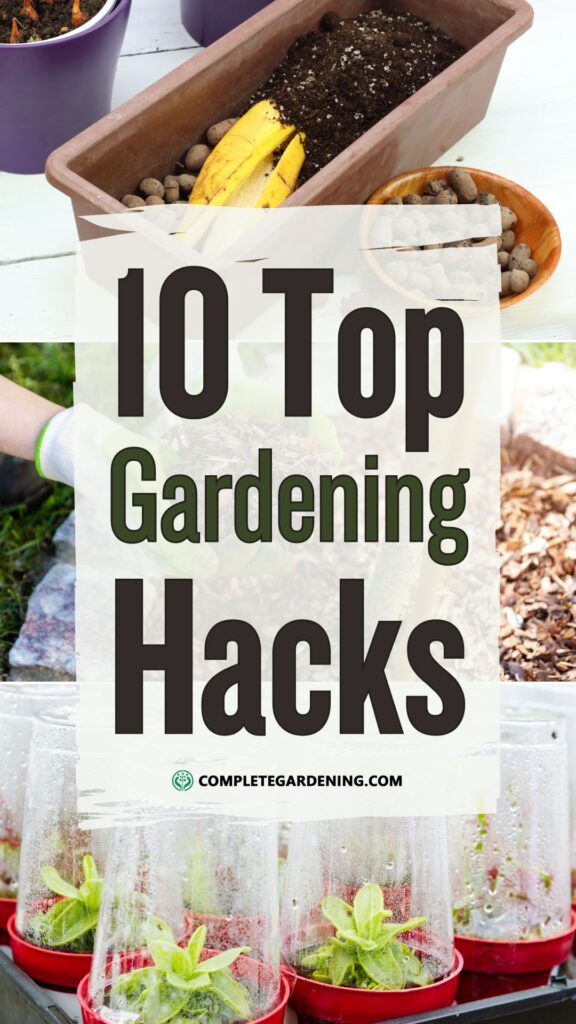Gardening can be a rewarding and therapeutic hobby, but it also comes with its fair share of challenges.
Whether you’re a seasoned gardener or just starting out, there’s always something new to learn.
Fortunately, a few clever gardening hacks can make the process more efficient, sustainable, and enjoyable.
Here are ten top gardening hacks that will elevate your gardening game and help you grow a thriving garden with minimal effort.
1. Boost Seed Germination with a DIY Mini Greenhouse
Starting seeds can be tricky, especially in unpredictable weather. A simple and cost-effective solution is to create your own mini greenhouse using a plastic storage container.
All you need to do is drill a few ventilation holes in a large, clear plastic container with a lid. Place your seedling tray inside, snap the lid shut, and you’ve got a warm, humid environment perfect for seed germination.
As the seedlings grow, prop the lid open to allow for air circulation, and when they’re ready, you can remove the lid altogether. This hack is perfect for extending your growing season and ensuring your seeds get the best start possible.
2. Save Space with Vertical Gardening
If you’re limited on garden space but still want to grow a variety of plants, vertical gardening is the way to go.
Plant towers, which can be easily constructed from materials like PVC pipes or repurposed wooden pallets, allow you to grow multiple plants in a compact footprint.
Vertical gardening not only maximizes your space but also makes harvesting easier and can help reduce pest problems by elevating your plants off the ground. This method is particularly useful for growing herbs, strawberries, or even leafy greens.
3. Repel Pests Naturally with Household Items
Gardening often means dealing with unwanted pests, but you don’t always need to resort to harsh chemicals to protect your plants. Common household items can be surprisingly effective.
For example, sprinkling cinnamon around seedlings can prevent fungal diseases thanks to its natural anti-fungal properties. Similarly, using coffee grounds around your plants can deter slugs and snails while also adding nutrients to the soil.
Another great trick is to use eggshells; crushed eggshells scattered around plants not only deter pests like slugs but also provide a calcium boost to the soil.
4. Create Your Own Fertilizer with Kitchen Scraps
Don’t throw away those kitchen scraps! Many of them can be turned into nutrient-rich fertilizer for your garden.
For instance, banana peels are loaded with potassium, which is great for flowering plants. Simply bury the peels near the base of your plants or soak them in water to create a nutrient-rich “banana tea” for watering.
Similarly, you can use coffee grounds as a nitrogen-rich fertilizer for plants like tomatoes and roses. This not only reduces waste but also gives your plants a natural boost.
5. Water Wisely with Self-Watering Systems
Going on vacation and worried about your plants? Create a DIY self-watering system using a kiddie pool. Fill the pool with a few inches of water and place your potted plants inside, making sure they are not in direct contact with the water.
The soil will wick up the moisture as needed, keeping your plants hydrated without risk of overwatering. This method is especially useful for those hot summer months or when you’re away from home.
6. Use Mulch to Enhance Soil and Save Water
Mulch is a gardener’s best friend for several reasons. It helps retain soil moisture, suppress weeds, and even regulate soil temperature. But did you know that it can also lighten the load in your pots and planters?
Instead of filling large pots entirely with soil, add a layer of mulch or dried leaves at the bottom. This not only reduces the weight but also improves drainage, preventing root rot and promoting healthier plants.
Plus, as the mulch breaks down, it adds organic matter to the soil, enriching it over time.
7. Maximize Plant Health with Companion Planting
Companion planting is an age-old technique that involves planting certain crops together to enhance growth, deter pests, and improve flavor.
For example, planting basil next to tomatoes can repel pests like aphids and improve the flavor of the tomatoes.
Similarly, marigolds planted near vegetable gardens can deter nematodes and other harmful insects. This natural method of pest control reduces the need for chemicals and can lead to a more productive and healthy garden.
8. Repurpose Everyday Items for Garden Tools
You don’t need to spend a fortune on specialized gardening tools; sometimes, everyday items can do the job just as well.
An old strainer, for instance, can be repurposed as a soil sifter, helping you remove rocks and debris from your garden soil, which is especially useful for root vegetables.
Another great hack is using an old salad spinner to wash and dry your freshly harvested greens. These creative solutions save money and reduce waste while making your gardening tasks easier.
9. Repurpose Wine Corks as Plant Markers
Keep your garden organized by using wine corks as plant markers. Write the name of the plant on the cork, then attach it to a skewer or stick and place it in the ground. It’s a simple, eco-friendly way to label your plants.
You can also label your garden with ease by using popsicle sticks or stones as simple, eco-friendly plant markers—just write the plant names and place them beside your seedlings for easy identification.
10. Enhance Plant Growth with Epsom Salt
Epsom salt is a gardener’s secret weapon. Rich in magnesium, it helps plants take up nutrients like nitrogen and phosphorus more efficiently, leading to stronger, healthier growth.
To use Epsom salt in your garden, simply dissolve a tablespoon in a gallon of water and use it to water your plants once a month.
This is particularly beneficial for tomatoes, peppers, and roses. Not only does this hack boost plant health, but it also promotes more vibrant blooms and tastier fruit.
Gardening doesn’t have to be a chore. With these ten hacks, you can simplify your gardening tasks, reduce waste, and grow a more bountiful and beautiful garden.
Whether you’re looking to save time, repurpose household items, or protect your plants naturally, these tips will help you garden smarter, not harder. So go ahead, try out these hacks, and watch your garden thrive!
